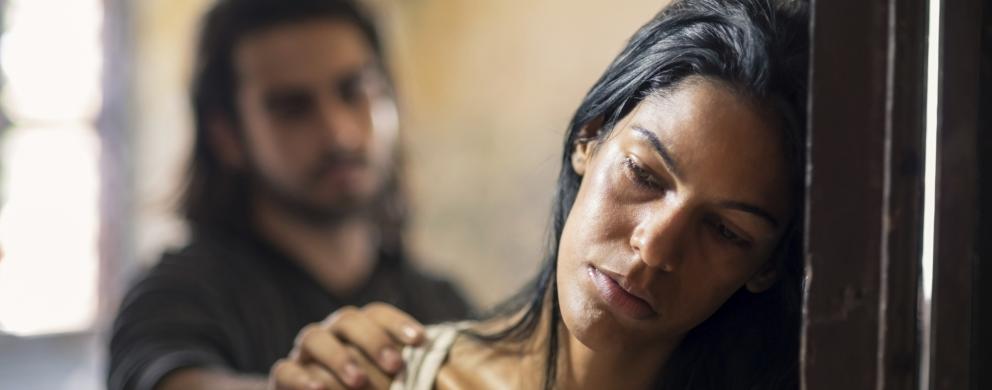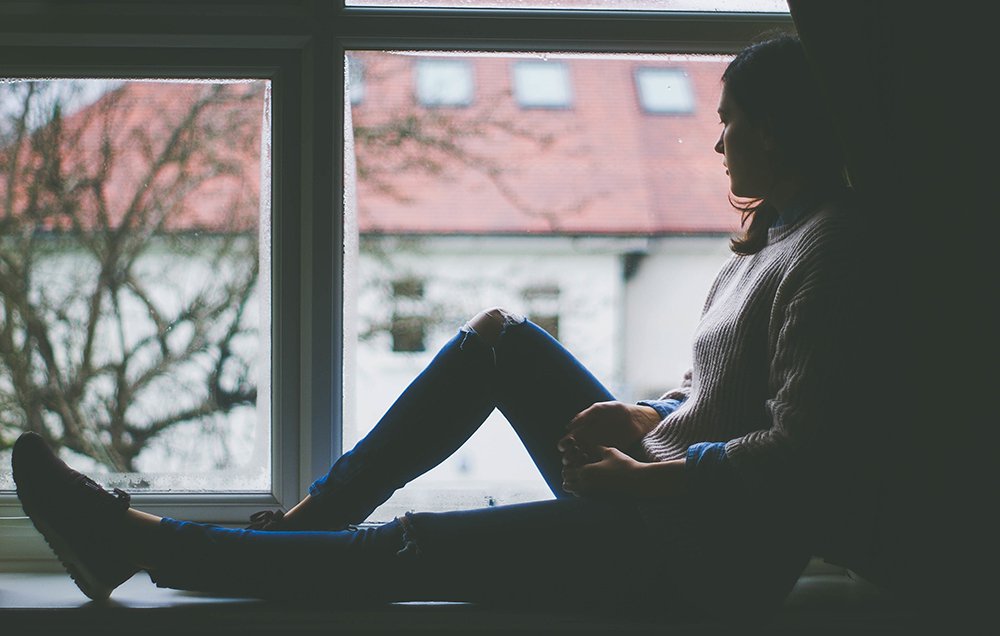Domestic abuse charities in Europe have called for hotels and holiday lets to be turned into refuges as they warned that coronavirus lockdowns would lead to a massive jump in the numbers of women fleeing violence.
Governments, support services and charities are scrambling to help thousands of women facing weeks of isolation at home with a violent partner during quarantine measures.

“It’s a perfect storm,” Suzanne Jacob, chief executive of British charity SafeLives, told the Thomson Reuters Foundation. “Lockdowns will lead to a surge in domestic abuse, but also severely limit the ability of services to help.”
Britain joined Italy, Spain, France and Belgium this week in ordering citizens to stay home to curb the spread of COVID-19, which has killed more than 21,000 worldwide.
As the country shut down, charities urged employers, bank staff, health workers and neighbours to be extra vigilant, adding that even a note dropped in a grocery bag could be a lifeline for a woman trapped with an abusive partner.
In Spain, local authorities in the Canary Islands have set up an initiative that enables victims of domestic abuse to go to their pharmacy and request a ‘Mask 19’, a code word that will alert the pharmacist to contact the authorities.
Gender experts say rates of domestic and sexual violence rise when societies are under stress, during natural disasters, food shortages and epidemics – or even when a local football team loses a match.
In China, where the virus first emerged, anecdotal evidence suggests reports of domestic abuse doubled or trebled during its lockdown which began in January. A hashtag translating as #AntiDomesticViolenceDuringEpidemic also went viral.
‘MASSIVE INFLUX’
Countries in Europe said it was too early to say whether cases had gone up.
But domestic abuse survivor Rachel Williams, who is running online support groups in Britain during the crisis, said she had heard of a 30% increase in some countries in lockdown.
“We are going to see a massive influx here, without a shadow of a doubt. The government must look at using hotels, bed and breakfasts and Airbnbs to keep women safe,” she added.
Williams, who was shot by her estranged husband after leaving him following years of abuse, said there were just 4,000 refuge spaces across the country, which saw 19,000 referrals last year.
In Italy – in lockdown since March 9 – refuges and support centres say they are struggling to operate and often lack masks and hand sanitiser for staff.
Coronavirus has killed more than 7,500 people in Italy, by far the worst affected country.
D.i.RE, a network of 80 centres, has asked the government to free up facilities for new domestic abuse cases to prevent them potentially introducing coronavirus into existing refuges.
One centre in the northern Emilia Romagna region is converting a former convent for use. Another in Padua is using holiday lettings site Booking.com to find apartments for women.
Some services in Italy are asking women to provide a negative COVID-19 test in order to access shelters, but tests are not widely available to people without symptoms.
CODED MESSAGES
In France, which went into lockdown last week, Equality Minister Marlene Schiappa has warned that quarantine will be a “breeding ground for violence” with emergency shelter provision a major concern.
France’s national domestic abuse hotline has seen a rise in calls this week, but helplines and charities elsewhere said calls had fallen as it became harder for women to reach out.
“We’re having trouble talking to women by phone as their abusers are on the prowl 24 hours a day,” said abuse survivor Ana Bella Estevez, who runs a support organisation in Seville in southern Spain.
Estevez, who fled her abusive marriage after her husband tried to kill her, said her charity would normally call women when their partners were at work, but was increasingly turning to text-based technology including WhatsApp.
The Spanish government has said it will shortly launch a chat service with geolocation technology enabling victims to contact the police, and another providing psychological support during isolation.
Madrid, Valencia and Andalusia are meanwhile looking to adopt the ‘Mask 19′ initiative, according to media reports.
In Britain, SafeLives said bank staff, as well as health workers, should watch out for coded messages abuse victims may give out when contacting them.
With many people having lost jobs or income during the crisis, Lloyds Bank – one of Britain’s biggest banks – has sought the charity’s advice on how to spot vulnerable customers.
As people set up new methods of home-working, SafeLives’ CEO Jacob said employers should also think about what their employees’ home life is like and keep regular contact.
For someone living with a controlling partner, a chat with the boss may be one of the few ways they can keep in touch with the outside world.
Jacob also warned that job losses would not only heighten women’s vulnerability to abuse but could leave them stuck in dangerous relationships long after the crisis is over.
“It’s vital to protect people’s employment and income now to make sure they don’t end up trapped in abusive situations when we get through the other side of this,” she said.
Abuse survivor Williams, who has written about her experiences in a book called “The Devil at Home”, also urged the public to reach out if worried about a neighbour.
“Ask if they need any shopping. That could allow them to write something on their shopping list. Or, if it’s safe to do so, drop a note in the bag when you hand over the shopping,” she said.
“Don’t be a bystander. More so than ever before, domestic abuse is everybody’s business.”

